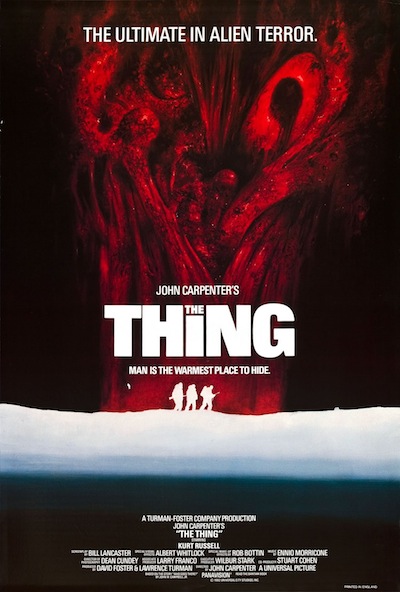A while back, I did a reading with the wonderful author Leora Skolkin-Smith (Hystera). The evening’s event was called The Family Thing. And while the plan was to connect up our shared interest in the thematics of family, I steered momentarily off course to that all-consuming linguistic place holder, the word ‘thing’.
I have always enjoyed the word ‘thing’ and, more so, its plural form: ‘things’. The word is surely one of the most comprehensive nouns in the English language. In fact, I bet we could dispense with most of the other 125,000+ nouns (OED very rough estimate) and get along with one another just fine. Whenever at a loss for specifics or the right words, we can always rely on ‘things’ to keep us from sounding like an idiot.
For example, the enunciative catch-all, or what linguists – in their hapless fly-in-the-bottle effort to pin down language with language – call the phatic:
“How are things?” – This is a general greeting, seemingly harmless, that inquires about one’s state of affairs. It does not necessarily expect an answer. That’s very helpful, because the existential metaphysics lurking within any kind of real answer would likely make both your and your interlocutor’s head explode. “Fine,…thanks for asking” suffices perfectly well. Everyone gets off the hook.
On the other hand with a slight twist, we can ferret out some(thing) more specific:
“How are things going?” – Although here we could still be referring to the unleashed maelstrom raging inside your head, we might actually be inquiring about that disastrous money pit, bad contractor, loopy architect apartment renovation you should have never undertaken. “Don’t ask,” you reply.
Then, there is the Materialist usage:
“Did you bring your things?” – Seemingly straightforward, it can also deliver up an unintended sucker punch. You think to yourself as your stomach corkscrews, “Holy shit, what did I forget?!” Your cramped-up muscles relax on their bones only when you realize your suitcase is hanging heavily from your hand.
Or an Action, an Event that still needs to be given a proper name.
“What was that thing you did, the other night?” Here, everyone has a good chuckle remembering what a card you’d been at that big party, the one where you strutted around bent-kneed, neck-jerking like a clucking hen, quoting Heidegger with a corrugated lamp shade on your head. Best that the event remains unnamed however…along with your identity. There are a lot folks you didn’t meet at the party who are now all over town declaiming, “This guy did this totally weird thing at a party the other night…”
All in all, we’re a funny lot with our language games. Wittgenstein had it right when he said about ‘things’: “The older I grow the more I realize how terribly difficult it is for people to understand each other, and I think that what misleads one is the fact that we all look so much like each other. If some people looked like elephants and others like cats, or fish, one wouldn’t expect them to understand each other and things would look much more like what they really are.“
The filmmaker, John Carpenter had it right as well: “Man is the warmest place to hide” …for any Thing.
But in As It Is On Earth, Taylor Thatcher speaks for all humanity when he wonders, “why everyone wants so badly to get to the bottom of things. The Real Bottom…below which, nothing…no Thing…not even a word for it.”









We had a professor at art school, the late Ben Levene, quite a good painter, who was always going on about “the thingness of things”. I think he’d got it off Heidegger – he was that post WW2 existentialist generation – but he never said, and we were really too young to have a clue what he was talking about.
In Norwegian, the city courthouse is called the tinghus, the “thinghouse”. I believe the old Nordic (Norwegian, Danish, Icelandic, maybe Swedish too) use of ting/thing to mean lawsuit may just be a calque from Latin in rei that you see used in the titles of US legal papers. And then there’s Italian thing cosa (cosa nostra, “this thing of ours”).
And in German one great word (of several) for thing is das Ding.
This is the ideal answer. Eveyrone should read this
The oldest meaning of thing is ‘assembly, meeting’; the locals in Germanic countries would meet on certain dates to hear and if necessary change the laws as well as to settle disputes. But thing came to also mean an issue before the assembly and then (since a thing could discuss, well, any-thing) an object or idea of any sort.
When kings gained the upper hand over things, they became basically courts rather than legislatures. The Althing in Iceland remained a court until independence, so the Icelandic word for ‘object’ is not thing but hlutur, English lot in the sense of ‘share’. The word has been revived in the names of various modern parliaments: Althing (‘thing of all [people]’) in Iceland, Storting (‘big thing’) in Norway, and Folketing (‘people’s thing’) in Sweden. Tynwald on the Isle of Man, which has been around since the 15C and perhaps even the 10C, was originally Thingvald ‘thing field’, as it meets outdoors.
Pingback: The Little Drummer Boy and The Secretary of State: A Quest for Grace & Spiritus -